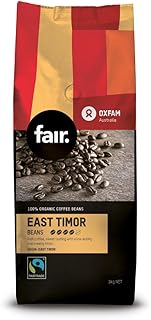Certifications in the coffee industry have become a symbol of sustainability and ethical sourcing, with labels like “100% organic” and “Fairtrade” adorning coffee packages worldwide. While these certifications aim to benefit consumers and the environment, questions arise about who truly benefits from them. The allure of certifications lies in the credibility and trust they establish among stakeholders, but the burden of securing these certifications often falls heavily on producers.
Producers invest significant time, money, and effort in obtaining certifications, hoping to secure a price premium and better income. However, the costs associated with certifications can be prohibitive, especially for small and medium-sized producers. Despite the promises of increased profitability, many producers struggle to justify the investment, particularly in the current economic landscape where market prices do not adequately cover certification expenses.
While certifications are seen as a valuable asset for roasters to differentiate themselves in a competitive market, the demand for certified coffee primarily comes from consumers. This demand drives producers to seek certifications, but the financial burden often outweighs the potential benefits. The disparity in investment and gains between producers and roasters raises concerns about the sustainability and equity of the certification system.
The coffee industry faces challenges in balancing the costs and benefits of certifications for all participants. Producers bear the brunt of certification expenses, while roasters and consumers reap the rewards of perceived added value. The evolving landscape of certification programmes may risk becoming a burden resembling a “producer tax,” further widening the gap between producer contributions and roaster gains.
Efforts to establish a model of co-investment between producers and roasters offer a potential solution to address the imbalance in the certification system. By sharing financial responsibilities and acknowledging the shared benefits of certifications, a more equitable and sustainable supply chain can be achieved. However, widespread adoption of this model is crucial to revolutionize the dynamics of the coffee industry and promote fairness across the entire value chain.
As the coffee market navigates the complexities of certifications and compliance requirements, finding a harmonious balance between costs and benefits for all participants is essential for the long-term viability and ethical integrity of the industry. Collaborative efforts along the supply chain, involving roasters, producers, traders, and industry stakeholders, are vital to ensure a fair and sustainable certification system that benefits all involved parties.
📰 Related Articles
- Platinum Market Dynamics: Balancing Demand and Supply Challenges
- Navigating AI Challenges in Healthcare: Balancing Potential and Realities
- Luckin Coffee Sustains Low-Cost Strategy Amid Rising Costs
- Luckin Coffee Challenges Starbucks with Innovative U.S. Expansion
- Innovating Excellence: Challenges and Success in Specialty Coffee Market






